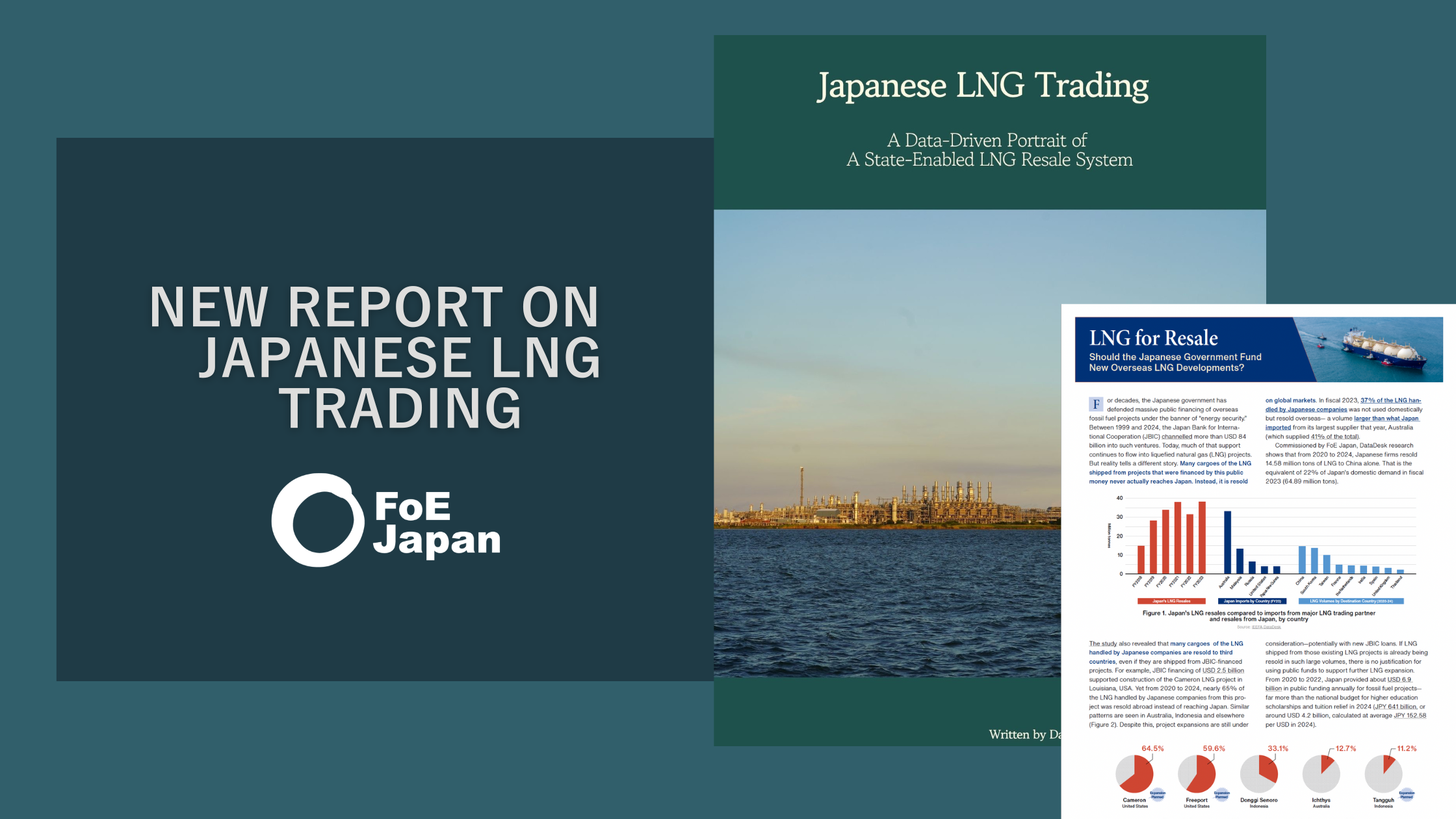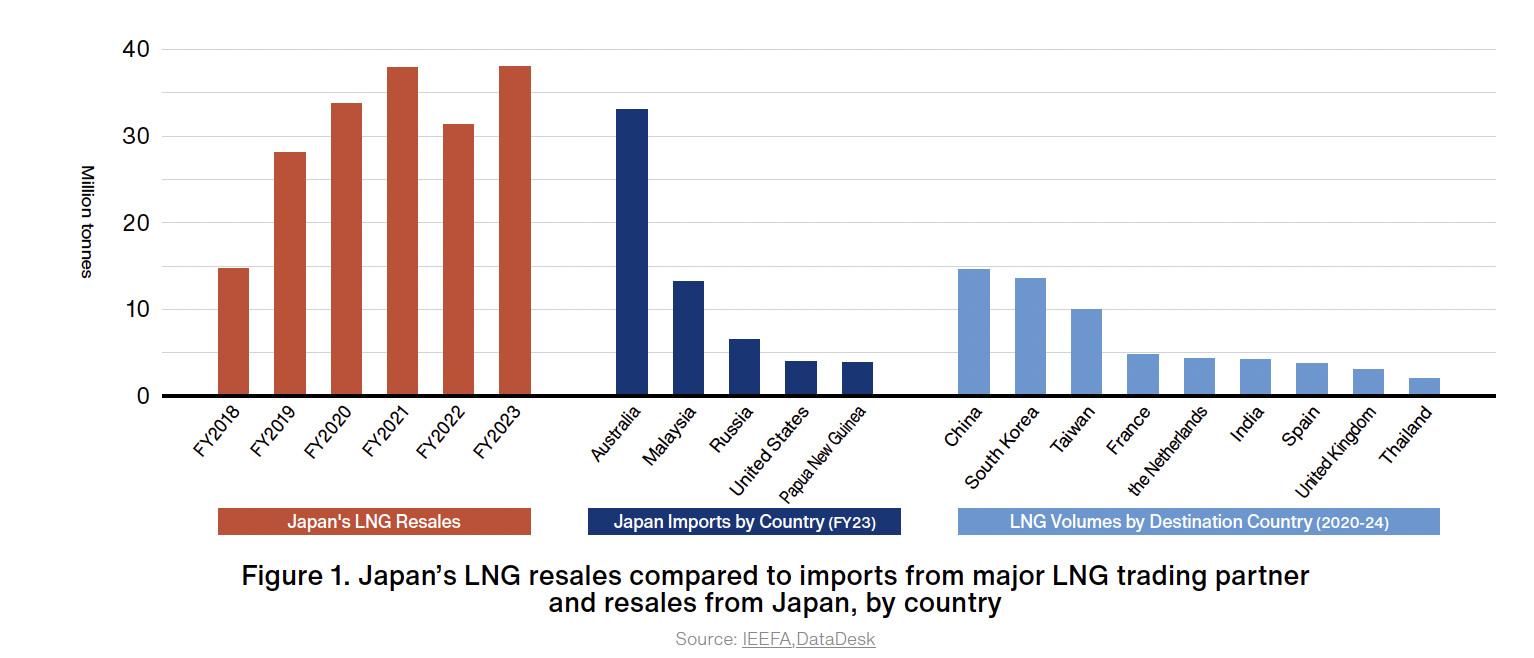New Report on Japanese LNG Trading

Read the report: Japanese LNG Trading: A Data-Driven Portrait of A State-Enabled Resale System
Summary Briefing: LNG for Resale: Is Public Support for New Overseas LNG Projects Necessary?
FoE Japan released new research report on the recent expansion of LNG resales by Japanese companies. The LNG resale study—commissioned by FoE Japan and conducted by the independent research group DataDesk—integrates Kpler’s cargo movement and contract data to classify every LNG cargo handled by Japanese companies and quantifies resale flows for 32 companies from 2020–2024, identifying major destination countries and overall resale volumes.
Key Findings
LNG for Resale
For decades, the Japanese government has justified billions in public financing for overseas fossil fuel projects under the banner of “energy security.” However, many cargoes of the LNG shipped from projects that were financed by this public money never actually reaches Japan. Instead, it is resold on global markets. In fiscal 2023, 37% of the LNG handled by Japanese companies was not used domestically but resold overseas— a volume larger than what Japan imported from its largest supplier that year, Australia (which supplied 41% of the total).
Commissioned by FoE Japan, DataDesk research shows that from 2020 to 2024, Japanese firms resold 14.58 million tons of LNG to China alone.

Trading, Even from JBIC Projects
The study shows that even cargoes of the LNG handled by Japanese companies are resold to third countries, even if they are shipped from JBIC-financed projects. For example, JBIC financed USD 2.5 billion for the construction of the Cameron LNG project in Louisiana, USA. Yet from 2020 to 2024, nearly 65% of the LNG handled by Japanese companies from this project was resold abroad. Similar patterns are seen in Australia, Indonesia and elsewhere (Figure 2).

Consequences of Japan’s LNG Strategy
The Japanese government has failed to reckon with the severe consequences of this “stable supply” strategy—one that entangles countries worldwide in LNG dependence. For example, a study commissioned by FoE Japan found that greenhouse gas emissions from JBIC-financed fossil fuel projects totalled 1.7 billion tons of CO₂ equivalent in 2023 alone—comparable to the combined emissions of Japan and Canada. Also, numerous testimonies highlight serious environmental and social impacts linked to JBIC-backed LNG projects: human rights violations, health damage, biodiversity loss, infringement of Indigenous rights, and harm to local livelihoods. In short, Japanese public funds meant to ensure energy security are instead driving fossil fuel expansion abroad, worsening climate change and causing grave human rights concerns.